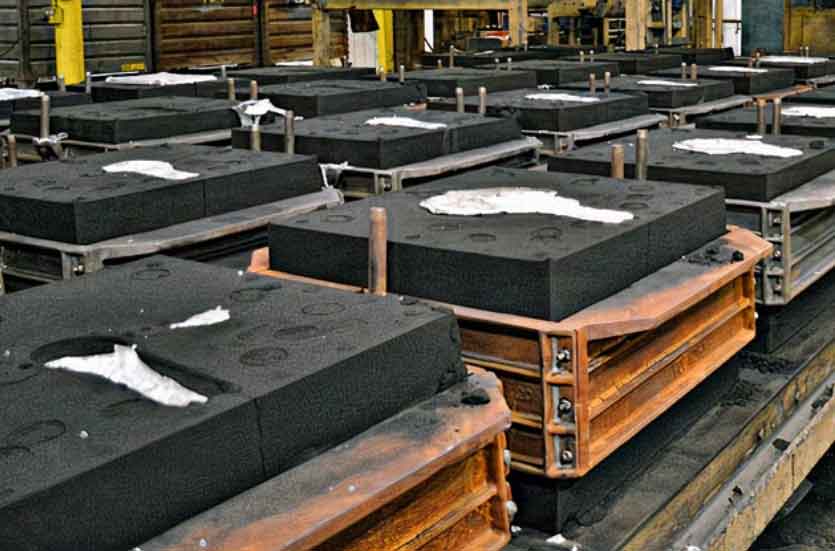
Resin sand casting offers several eco-friendly aspects that contribute to sustainable foundry practices. Here are some of the eco-friendly features of resin sand casting:
- Reduced Waste: Resin sand casting generates less waste compared to traditional green sand casting. The sand and resin mixture used for the molds can be recycled and reused multiple times, minimizing material waste and reducing the demand for new sand resources.
- Lower Emissions: The resin sand casting process typically involves lower emissions of greenhouse gases and pollutants compared to other casting methods. The use of resin binders reduces the need for coal-based binders commonly used in green sand casting, resulting in reduced emissions of harmful substances.
- Energy Efficiency: Resin sand casting generally requires less energy during the mold-making process. The resin curing process is often quicker and requires less heat than the drying process used in green sand casting, contributing to energy savings.
- Less Water Usage: Resin sand casting may use less water compared to other casting methods like die casting, which requires water-cooling for metal components. The reduced water usage is beneficial for areas experiencing water scarcity or aiming to conserve water resources.
- Recyclable Materials: Resin sand casting utilizes sand and resin binders that are recyclable and can be reprocessed to create new molds. This promotes a closed-loop system where materials are reused, reducing the overall demand for raw materials.
- Green Sand Reclamation: Resin sand casting allows for green sand reclamation, which involves separating the sand from the cured resin after the casting process. The reclaimed sand can be reused, further reducing the environmental impact.
- Smaller Carbon Footprint: The eco-friendly aspects of resin sand casting collectively contribute to a smaller carbon footprint compared to some other casting methods, making it a more sustainable choice for foundries.
It’s important to note that while resin sand casting offers eco-friendly advantages, sustainability in the foundry industry involves a holistic approach. Other factors, such as energy-efficient foundry operations, responsible waste management, and the use of renewable energy sources, also play a significant role in achieving sustainable foundry practices. By incorporating eco-friendly practices like resin sand casting and implementing sustainable initiatives, foundries can reduce their environmental impact and contribute to a greener future.
